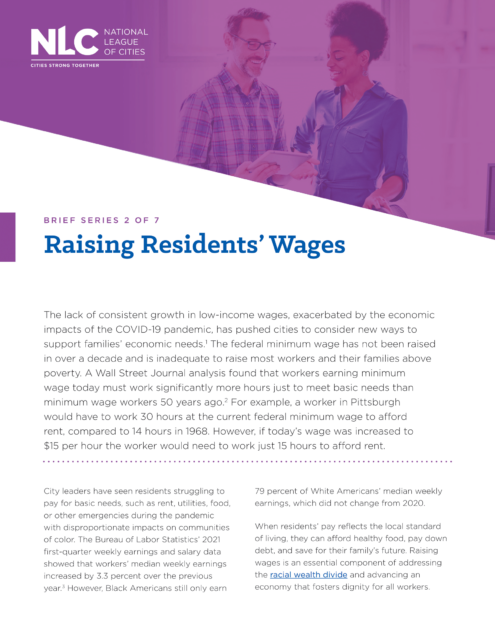The lack of consistent growth in low-income wages, exacerbated by the economic impacts of the COVID-19 pandemic, has pushed cities to consider new ways to support families’ economic needs. The federal minimum wage has not been raised in over a decade and is inadequate to raise most workers and their families above poverty. A Wall Street Journal analysis found that workers earning minimum wage today must work significantly more hours just to meet basic needs than minimum wage workers 50 years ago. For example, a worker in Pittsburgh would have to work 30 hours at the current federal minimum wage to afford rent, compared to 14 hours in 1968. However, if today’s wage was increased to $15 per hour, the worker would need to work just 15 hours to afford rent.
NLC created this series of resources as part of the Equitable Economic Mobility Initiative (EEMI), a two-year project intended to catalyze municipal action to expand economic mobility for residents while eliminating longstanding racial economic inequities. Through the Initiative, NLC aims to help cities recover and rebuild after the devastating impacts of the COVID-19 pandemic – through strategies that support residents’ economic stability (meeting basic needs) and economic security (stable employment and ability to cover expenses), setting them on a path to building wealth (ability to save for the future). EEMI is made possible by the generous support of the Bill & Melinda Gates Foundation.
This brief series is based on research funded by the Bill & Melinda Gates Foundation. The findings and conclusions contained within are those of the authors and do not necessarily reflect positions or policies of the Bill & Melinda Gates Foundation.
Learn more about taking action to expand economic mobility for your residents and visit Equitable Economic Mobility Initiative.








